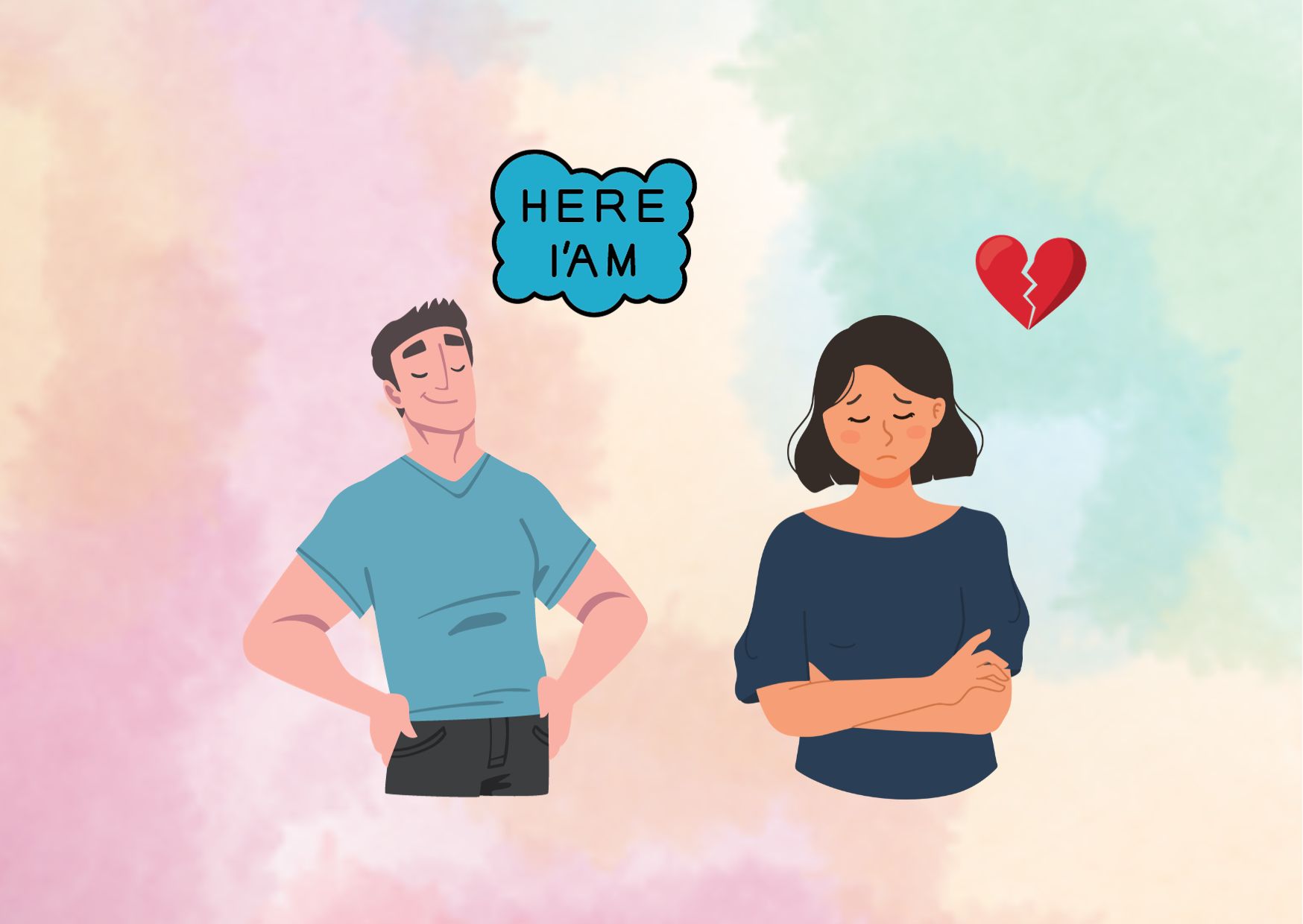Personal Insecurities: The Impact on Relationships
Individuals grappling with personal insecurities may unintentionally project those feelings onto their partners, leading to behaviours that appear indifferent or uncaring. Insecurity can create a lens through which your husband perceives interactions, causing him to withdraw emotionally or respond in ways that don’t align with his true feelings.
Encourage open and supportive conversations about personal insecurities. Create a safe space where both of you can express vulnerabilities and fears without judgment. By fostering an environment of empathy and understanding, you can work together to address personal insecurities and strengthen your relationship.
Suggestion for read: Should I Give Up on Him?
Emotional Distance: Nurturing Connection
Over time, relationships can experience a natural evolution where the initial spark and intimacy may fade. This reduced emotional connection can lead to feelings of being undervalued or unimportant. However, it’s essential to remember that emotional distance does not necessarily indicate a lack of love or value you.
Make a conscious effort to nurture emotional connection and intimacy in your relationship. Plan regular date nights, engage in activities you both enjoy, and prioritize quality time together. Open and honest communication about your emotional needs and desires can help bridge the gap and reignite the emotional connection between you and your husband.
Lack of Self-awareness: Recognizing Impactful Behaviours
In the busyness of daily life, it’s easy to overlook how our behaviours and actions affect our partners. Your husband may be unaware of the impact his actions have on your emotional well-being, leading to feelings of being undervalued.
Take the time to express how his actions make you feel and help him understand the importance of his role in your life. Encourage self-reflection and introspection, fostering a greater level of self-awareness. By creating a mutual understanding of each other’s needs and emotions, you can work towards a more supportive and fulfilling relationship.
Cultural or Upbringing Differences: Bridging the Gap
Cultural or familial influences can shape one’s understanding of relationships and expressions of love. If there are differences in these areas between you and your husband, it can lead to misaligned expectations and feelings of being undervalued.
Engage in open and respectful conversations about your cultural backgrounds, beliefs, and values. Seek to understand and appreciate each other’s perspectives and find common ground that honors both of your cultural identities. Embracing and celebrating these differences can strengthen your bond and foster a deeper sense of value and appreciation.
Loss of Connection: Reviving Intimacy
As time passes, it’s not uncommon for relationships to go through periods where the initial spark and connection may fade. This can lead to a sense of emotional distance and feelings of being undervalued. However, it’s important to remember that these phases are natural and can be overcome.
Explore ways to revive intimacy and reignite the passion in your relationship. Engage in activities that bring you joy and foster a sense of connection. Communicate your desires and needs to your husband, creating an open dialogue about intimacy and finding ways to meet each other’s emotional and physical needs.
20 Signs Your Husband Doesn’t Value You: Red Flags to Look Out For
It’s crucial to recognize the signs that indicate your husband may not value you as much as you deserve. These signs can vary from emotional to behavioural indicators and may include:
- Lack of affection and emotional intimacy
- Exclusion from decision-making processes
- Disregard for your schedule and commitments
- Public humiliation or belittlement
- Infidelity or inappropriate behavior with others
- Guilt-tripping and manipulation tactics
- Walking on eggshells to avoid conflict
- Attempts to change your personality or appearance
- Neglecting to spend quality time with you
- Disrespecting your boundaries and personal space
- Being emotionally unavailable in times of need
- Failing to prioritize your well-being
- Expecting you to bear financial burdens alone
- Stonewalling or refusing to communicate effectively
- Lacking support for your dreams and aspirations
- Prioritizing other aspects of life over your relationship
- Only reaching out when in need of something
- Lacking empathy and understanding
- Gaslighting or invalidating your experiences
- Failing to acknowledge and appreciate your efforts
Taking Action: How to Address the Issue
If you recognize any of these signs in your relationship, it’s important to take action and address the issue. Here are seven steps you can take to navigate this challenging situation:
- Set Boundaries and Say “No”: Clearly communicate your boundaries and stand firm in your decisions.
- Foster Financial Independence: Develop financial independence to ensure you have the freedom to make choices that align with your needs.
- Seek Support: Build a network of supportive friends, family, or seek professional help through online counselling or therapy.
- Communicate Effectively: Engage in open and honest conversations about your feelings and concerns, encouraging your husband to do the same.
- Take a Break: Consider taking a break from the relationship to gain clarity and perspective on your needs and desires.
- Maintain Individuality: Preserve your individuality and pursue your own interests and goals outside of the relationship.
- Seek Professional Help: If the issues persist or become overwhelming, consider seeking the guidance of a couples therapist or counselor who can provide professional support and guidance.
Inquire Talk: Supporting Your Journey to Better Mental Health
At Inquire Talk, we understand the importance of mental health and well-being in relationships. Our dedicated therapists are here to provide the online counselling, therapy, or psychotherapy you need to navigate relationship challenges and improve your overall mental health. Explore our platform today and let us be a part of your journey towards a happier and healthier life.
You deserve to be in a relationship where you are respected, valued, and cherished. Take the necessary steps to address the signs that your husband may not value you, and prioritize your own well-being.
Here are few certified therapists who you can get in touch and book a therapy session with:
Laura Dee
Natalie Mills
Sophie Barrett
